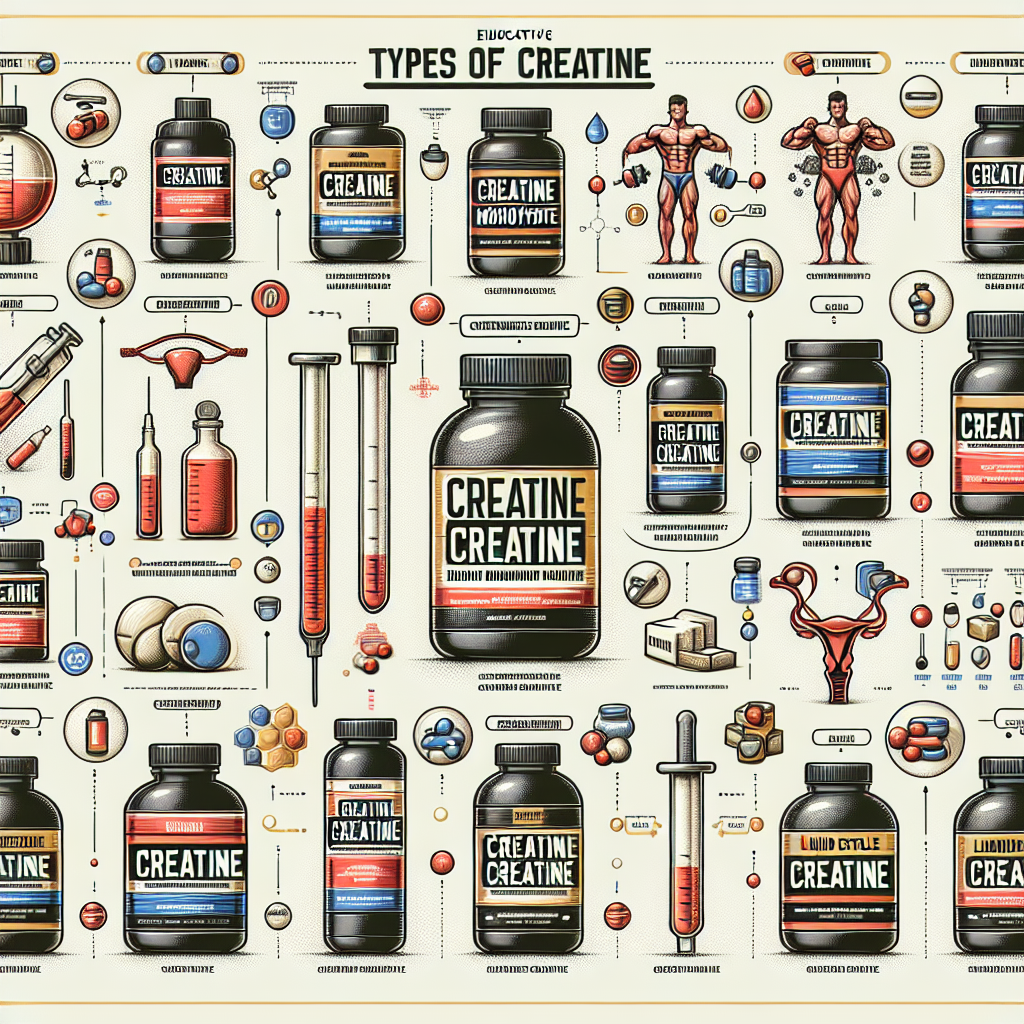
Introduction: Unveiling the Secrets of Creatine Variants
Hello, fitness aficionados! Ever wandered through the supplement aisle, puzzled about which creatine to grab? We’ve all been there! The sheer number of choices can be daunting. Fear not, this guide on "Different Types of Creatine: Which One Is Right for You?" has got your back. Whether you're a veteran gym-goer or a newbie to the fitness world, grasping the nuances of various creatine types can significantly enhance your performance and results.
Overview: The Importance of Creatine
Creatine is a naturally occurring substance essential for energy production, especially during intense workouts. It aids in replenishing adenosine triphosphate (ATP), the primary energy carrier in our cells. With boosted ATP production, you'll notice increased strength, quicker recovery, and improved endurance. Think of creatine as your reliable sidekick, always ready to amplify your powers when you need them most!
Ingredients and Advantages of Creatine
Most creatine supplements revolve around a common active ingredient: creatine monohydrate. Let's break down the main types and their benefits:
- Creatine Monohydrate: The most extensively studied and commonly used form of creatine, renowned for enhancing muscle mass and performance.
- Creatine Ethyl Ester: Alleged to have better absorption, though not consistently supported by scientific research.
- Creatine Hydrochloride (HCL): Promoted for causing less water retention and stomach discomfort, making it ideal for those with sensitive digestion.
- Buffered Creatine: The buffering process increases its stability in the stomach’s acidic environment, possibly improving absorption.
- Liquid Creatine: A pre-dissolved form thought to be easier on the stomach, although its long-term stability is debatable.
Guidelines on Using Creatine: Tips and Timing
Using creatine effectively involves understanding timing and dosage:
- Loading Phase: Some experts suggest starting with a loading phase of 20 grams per day, divided into 4 doses, for the first 5-7 days to saturate muscle creatine stores.
- Maintenance Phase: Post-loading, a daily dose of 3-5 grams suffices to maintain enhanced creatine levels.
- Timing: While creatine can be taken anytime, many prefer post-workout with a protein shake or a carb-rich meal for better absorption.
- Cycling: While not essential, some opt to cycle creatine (e.g., 8 weeks on, 4 weeks off) to prevent potential downregulation of natural creatine production.
Benefits and Potential Side Effects of Creatine
The advantages of creatine are as plentiful as gym selfies:
- Increased Muscle Mass: With enhanced ATP production, you’ll achieve more intense training and muscle growth.
- Improved Strength and Power: Crucial for lifting heavier weights and breaking personal records.
- Enhanced Recovery: Faster recovery times allow for more frequent gym visits without feeling exhausted.
Nevertheless, like any supplement, creatine might have some side effects:
- Bloating: Creatine can cause water retention, resulting in temporary bloating.
- Stomach Discomfort: Higher doses, particularly of specific types like creatine monohydrate, might upset sensitive stomachs.
- Kidney Concerns: Although generally safe, individuals with pre-existing kidney conditions should consult a healthcare provider before using creatine.
Creatine Compared to Other Supplements
Creatine stands out when compared to other fitness supplements:
- Versus Protein Powder: While protein aids muscle repair and growth, creatine enhances exercise performance and endurance.
- Versus Pre-Workout Supplements: Pre-workouts offer immediate energy through stimulants, whereas creatine provides a sustained performance boost without the jitters.
- Versus BCAAs: BCAAs help prevent muscle breakdown, but creatine directly boosts strength and muscle power.
Creatine is especially beneficial for strength training, high-intensity interval training (HIIT), and activities requiring short bursts of energy.
Personal Stories and Expert Opinions
Numerous individuals have experienced the benefits of creatine. Take Jane, for instance. As a regular gym attendee, she saw significant gains in strength and muscle definition after including creatine in her regimen. "It's like my muscles have a secret weapon now," she says. Similarly, fitness experts like Dr. Jim Stoppani endorse creatine, highlighting its extensive research and proven effectiveness.
Frequently Asked Questions (FAQ)
- Is Creatine Safe? Yes, creatine is safe for most individuals when used as directed. However, consult your healthcare provider if you have any health concerns.
- Will Creatine Cause Weight Gain? Creatine can lead to weight gain due to water retention in muscles, but this is temporary and not related to fat gain.
- Can I Combine Creatine with Other Supplements? Absolutely! Creatine can be taken alongside protein powders, BCAAs, and pre-workouts.
- Do I Need to Load Creatine? Loading is optional. It helps saturate muscles faster but isn’t necessary for long-term benefits.
- Can Women Use Creatine? Of course! Women can equally benefit from creatine for strength and performance enhancement.
Conclusion: Finding Your Perfect Creatine Match
In conclusion, selecting the right type of creatine involves understanding your body's distinct needs and your fitness goals. Whether you opt for the popular creatine monohydrate or a specialized variant like creatine HCL, there's a suitable option for everyone. As you navigate your creatine journey, always prioritize safety, tune into your body’s signals, and seek professional advice if necessary.
If you found this guide useful, explore more articles on HealthyHerbology.com to continue fueling your wellness journey. Remember, each step you take toward understanding supplements brings you closer to a healthier, stronger you!



